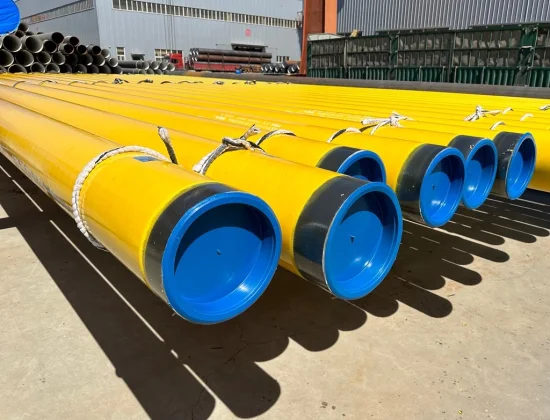In modern construction and industrial applications, protecting steel from corrosion is essential to ensure structural integrity and long-term performance. Epoxy Coated Steel Piping has become a preferred choice for engineers and builders who require durable, corrosion-resistant solutions for a wide range of environments. This specialized piping offers superior protection against rust, chemical exposure, and mechanical wear, making it an ideal option for water distribution, industrial processes, and infrastructure projects.
Understanding Epoxy Coated Steel Piping
Epoxy coated steel piping involves the application of a layer of epoxy resin to the inner or outer surfaces of steel pipes. This coating forms a strong barrier that isolates the steel from moisture, oxygen, and other corrosive agents. By preventing direct contact between the steel and external elements, the epoxy coating significantly extends the pipe’s service life and reduces the risk of leaks, contamination, or structural failure.
The process typically includes thorough surface preparation, application of the epoxy coating, and curing at controlled temperatures. This ensures a uniform, adhesion-strong layer that maintains its integrity even under high-pressure or extreme environmental conditions.
Advantages of Epoxy Coated Steel Piping
The use of epoxy coated steel piping offers several key advantages for industrial and construction applications:
- Corrosion Resistance: The epoxy layer effectively prevents rust formation, which is especially critical in water distribution systems, chemical plants, and coastal environments.
- Extended Longevity: By protecting the steel from environmental damage, epoxy coatings significantly increase the lifespan of the piping system, reducing replacement frequency and maintenance costs.
- Improved Flow Efficiency: The smooth internal surface of epoxy-coated pipes minimizes friction and scale buildup, ensuring efficient fluid transport and reduced energy consumption.
- Safety and Hygiene: Epoxy coatings provide a barrier against contamination, making them suitable for potable water systems and industrial fluids where cleanliness is essential.
These advantages make epoxy coated steel piping a practical and reliable choice for demanding applications that require both durability and performance.
Applications of Epoxy Coated Steel Piping
Epoxy coated steel piping is widely utilized across multiple industries due to its combination of corrosion resistance and structural integrity:
- Water Supply Systems: Epoxy-coated pipes prevent rust and ensure safe, clean water delivery in municipal and industrial water networks.
- Oil and Gas Pipelines: The coating protects steel from corrosion caused by moisture, chemicals, and underground conditions, enhancing pipeline longevity.
- Industrial Processes: Chemical plants and factories benefit from epoxy coated pipes as they resist degradation from various chemicals and fluids.
- Infrastructure Projects: Bridges, tunnels, and other public infrastructure employ epoxy coated piping to maintain structural reliability in harsh environments.
These applications demonstrate the versatility and effectiveness of epoxy-coated steel in both above-ground and underground installations.
Maintenance and Durability
Maintaining epoxy coated steel piping is relatively simple due to the protective nature of the coating. Routine inspections can help identify any areas where the coating may be compromised, such as scratches or chips, and prompt repair can prevent corrosion from developing. Additionally, the coating’s durability reduces the need for frequent maintenance compared to uncoated steel pipes, providing long-term cost savings.
Proper installation and handling are critical to ensure the coating’s performance. Pipes should be stored carefully to avoid mechanical damage, and installation should follow manufacturer guidelines to maintain coating integrity. With these precautions, epoxy coated steel piping can remain highly effective for decades.
Conclusion
Epoxy Coated Steel Piping is a highly effective solution for protecting steel from corrosion while enhancing longevity and operational efficiency. Its combination of durability, corrosion resistance, and hygienic properties makes it suitable for a wide range of industrial, municipal, and infrastructure applications. By investing in epoxy-coated piping, engineers and builders can ensure reliable performance, reduce maintenance costs, and deliver safe, long-lasting systems that meet modern construction and industrial standards.

